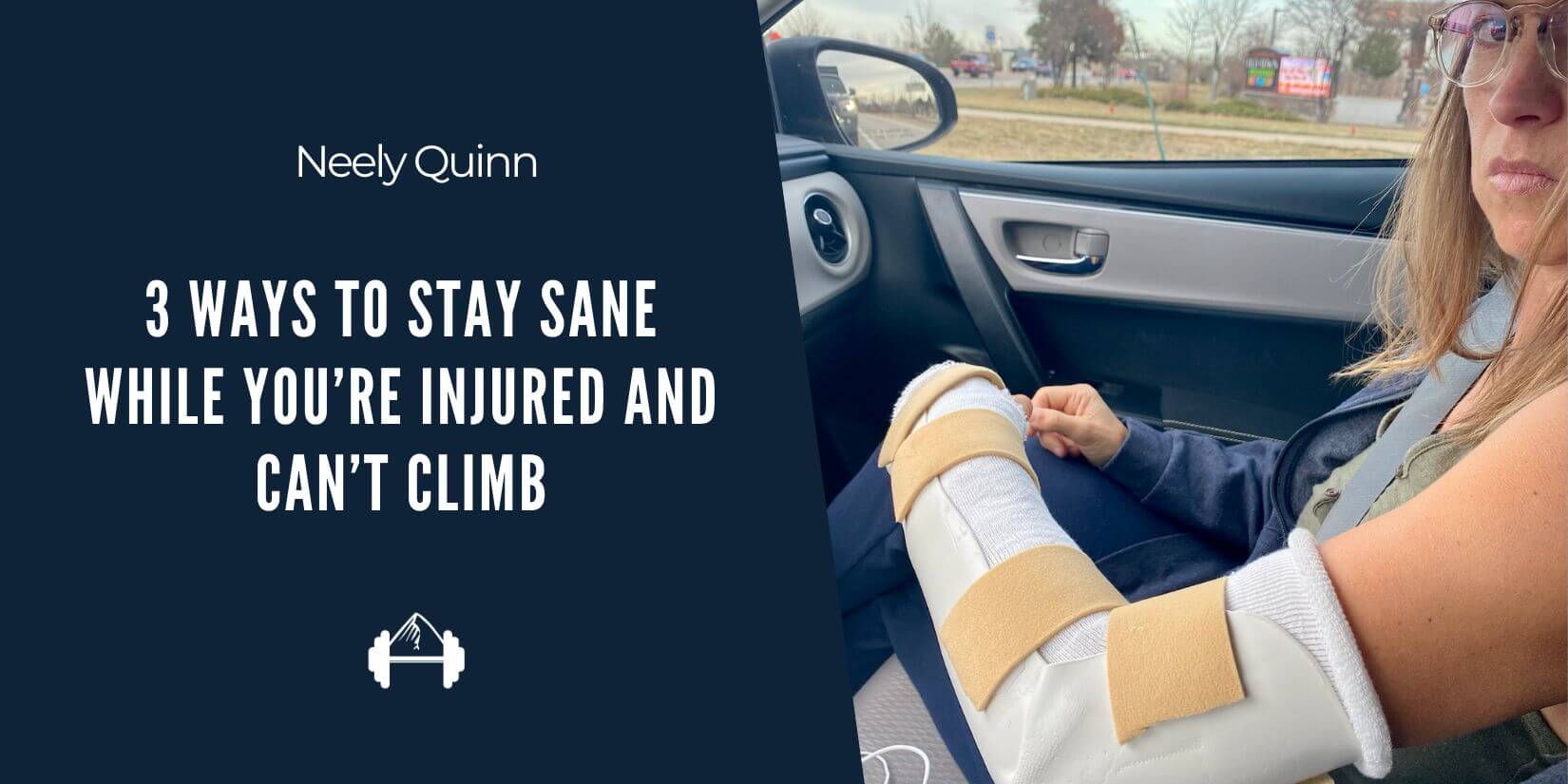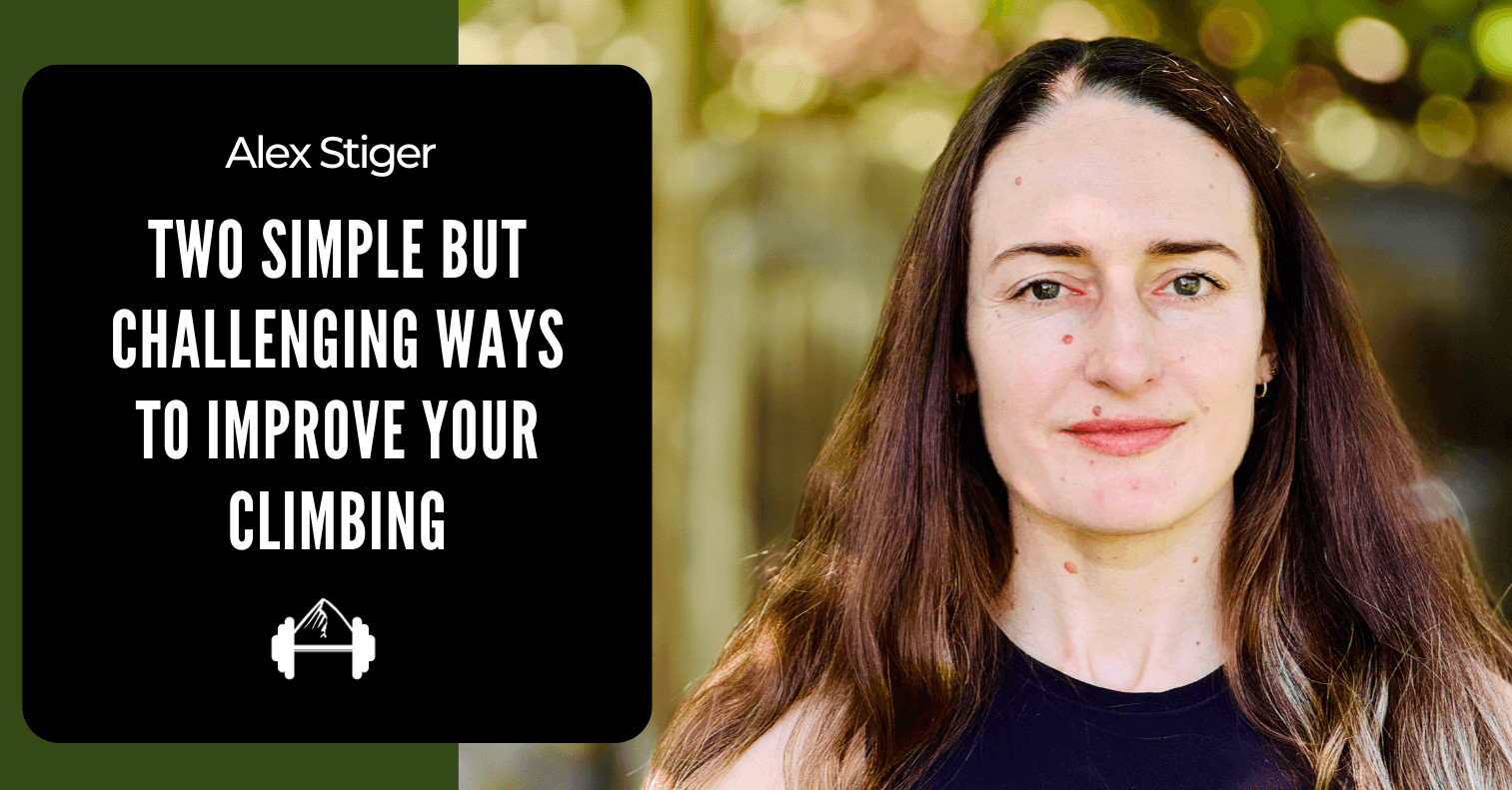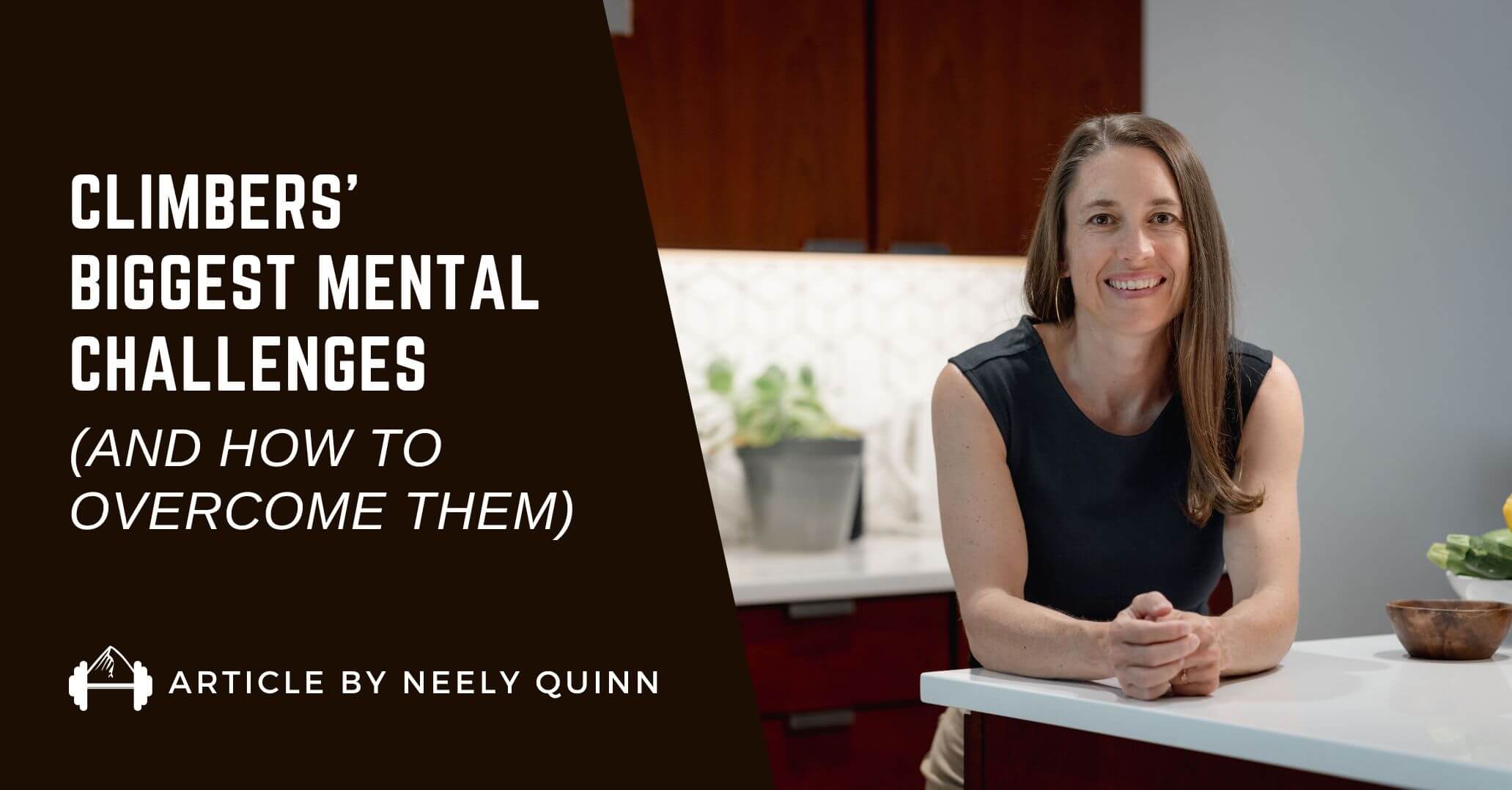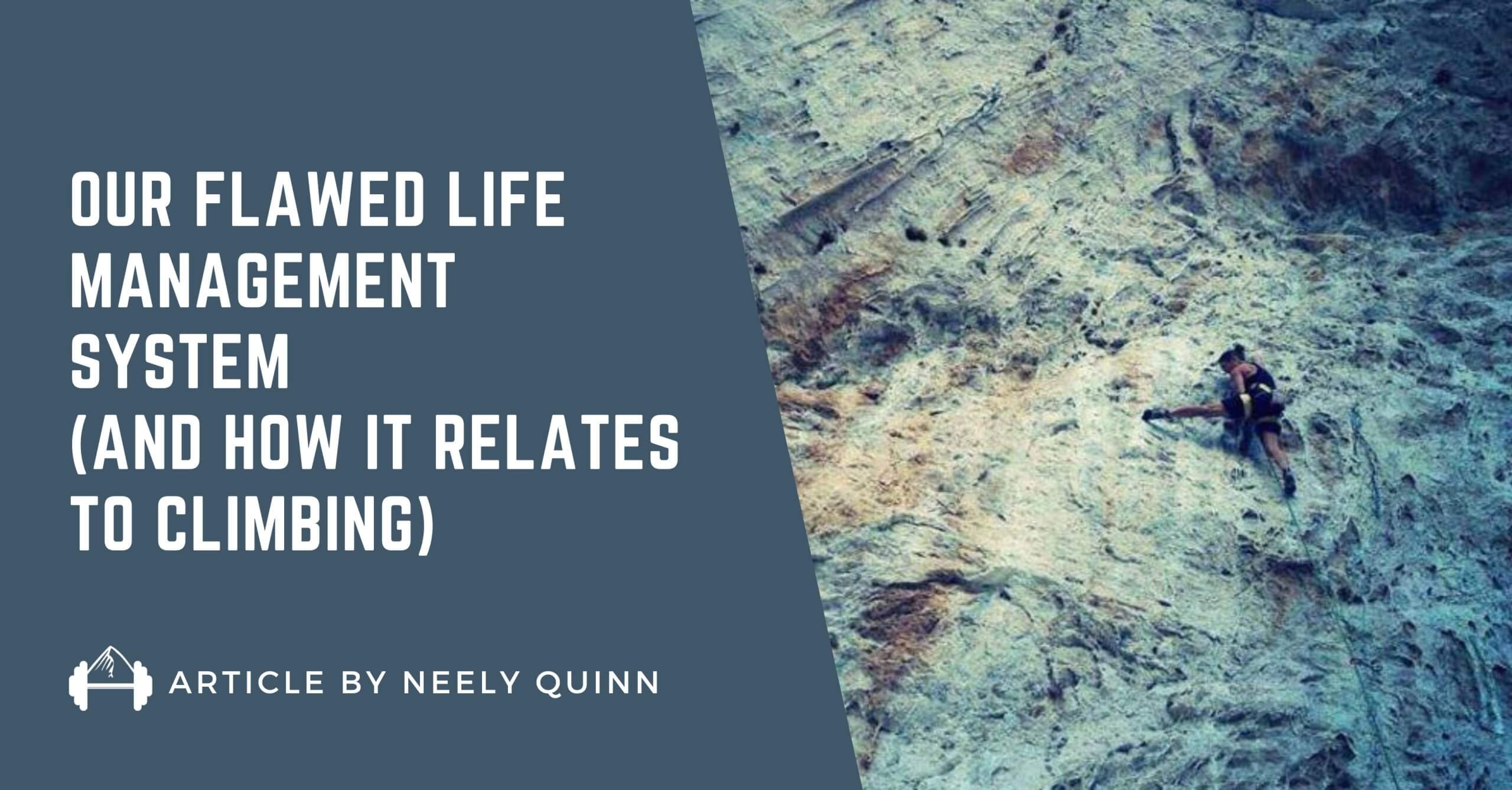Most climbers get injured at some point, and most climbers go through some mental and emotional turmoil when that happens. We lament the fact that we somehow did this to ourselves and that our bodies aren’t strong enough to withstand difficult things.
Then we wonder what in the WORLD we’re going to do instead of climbing, since it’s our most favorite thing. It makes us temporarily forget about the stressors in our lives, and it makes us feel physically GOOD, so what now?!
Not to mention that our identity as a human is wrapped up in our climbing, so who will we be if we’re not doing it? Will we still even have a social life without it? Ugh, it’s a lot and I can tell you I’ve been there lots of times.
But I’ve learned a few things over the years about how to take injuries in stride and find ways to feel productive, empowered, and content, even when I’m not climbing, and I want to share a few of them with you here if you’re struggling to figure out next steps with an injury and you’re feeling sad and hopeless about things.
First things first.
Seek Professional Help
I don’t mean therapy. I mean, that could help too. Actually, maybe you SHOULD get therapy about being injured! But what I’m referring to is a highly qualified doctor or physical therapist, especially someone who works with climbers a lot.
I know so many people who’ve suffered alone (or with Dr. Google) for MONTHS with debilitating injuries, thinking their injury wasn’t bad enough to get help or that it would just magically go away on its own. In my opinion, having had surgeries on 3 body parts now, if it’s affecting your life and your happiness, GET IT CHECKED OUT RIGHT AWAY.
Maybe wait a couple weeks after the injury starts if it’s not super serious (maybe?), but definitely go sooner than you think you should if you have the financial means to do so. Ask around for referrals to really good practitioners and then push for an MRI. Push for all of the diagnostic tools they have! That way, in the worst case scenario, if you need to have surgery, you’ll know that and stop wasting your time trying to fix it yourself.
This has happened to me 3 times now and looking back, I only wish I’d had my surgeries sooner and they were all 100% worth it. If you don’t need surgery, you’ll at least know exactly what the injury is so you can form a solid plan with a practitioner to heal it.
Having a plan in place can be the most empowering thing you do for an injury. It helps you see the light at the end of the tunnel.
Small plug here – physical therapist, Dr. Jared Vagy, has a bunch of protocols for different injuries (neck, shoulders, elbows, fingers) to get you started in a really affordable way once you know what your injury is.
That’s me after wrist surgery. I wasn’t happy in the moment, but now I’m certainly happy I got it figured out and it’s all healed up.
Keep Exercising
I’ve had a lot of nutrition coaching clients who come to me saying they’re out of shape and have gained a bunch of weight because they injured themselves and then just gave up on moving their bodies because they were lost without climbing.
Please don’t do this.
Moving your body is incredibly important for your physical and mental health, and your re-entrance into climbing will be so much harder if you lose all of your strength and fitness while you’re injured.
Depending on the injury, there are LOTS of things you can still do to stay strong, and a coach can help you tailor a program to work around your specific injury. Both of our coaches, Matt and Alex, have gone through many injuries and have come out stronger on the other side each time.
Work with one of them to keep you strong while you’re injured. Either one of them can help you keep moving at your own pace, even with your limitations right now.
Here’s Coach Matt Pincus climbing hard after recovering from all kinds of injuries.
Address Your Emotional Attachment to Climbing
In my early days as a climber when I got injured, one of my main concerns was that my friends wouldn’t be my friends anymore if I didn’t climb. I had to have conversations with them to get the reassurance I needed.
But over the years, I discovered there was a lot more underneath that: I derived so much of my own value from my climbing accomplishments that I didn’t know where else to get that self-worth when I was injured.
The easy answer here is to just find more hobbies to fall back on when you’re injured, right? Well sure, that’s great, but I think that’s missing the point. The bigger issue is that you’re deriving your self-worth from accomplishments and external validation from others for those accomplishments.
And while accomplishments are great, you have to ask yourself how you’d feel if you never accomplished another thing in climbing ever again.
- Would you still be a valuable person?
- Could your ego withstand the blow?
The truth is that you ARE a valuable person simply by existing, and you’re doing the best you can.
You didn’t MEAN to get hurt, and you might have learned something about what not to do in the future by hurting yourself. And if you allow yourself the space and grace, you can actually appreciate a lot of things WHILE you’re injured.
Here’s a thing I posted on Instagram on my personal page about what I was grateful for during my wrist injury back in 2020.
It did, indeed, teach me to care less about those things forever.
Lastly, you may think that this injury is going to ruin you as a climber–that you’ll never be strong again. But the truth is that it most likely isn’t, unless you’ve sustained an extremely life-altering injury.
You’re going to heal, get back out there, and climb hard things again before you know it. We are adaptable creatures and we can gain strength back really quickly.
In any case, if you’re injured and you need help working through it all, I’m here for you as a mindset coach for climbers. I’d love to help you work through being injured and help you find more meaning and value in your life outside of climbing.
I hope that if you’re injured, you heal quickly, and that this little blog post has given you some hope that you will get through this and be better for it on the other side. We’re here to help you through it!
About the Author, Neely Quinn
Neely Quinn is the owner and founder of TrainingBeta.com, the host of the TrainingBeta Podcast, a Certified Professional Coach (mindset coaching), and a nutritionist specializing in rock climbers. She has been climbing since 1997 and has climbed up to 5.13c and V9. She lives in Longmont, Colorado and Las Vegas, NV with her husband (and tech-guy for TrainingBeta), Seth Lytton and their heeler mix, Willa.









Leave A Comment